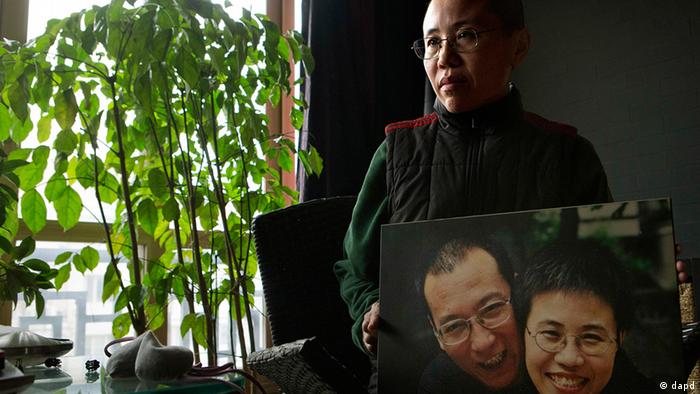觀點
不必對美國政府信息監控大驚小怪
查爾斯·A·沙諾 2013年06月09日
亞特蘭大——聯邦政府七年中一直在收集美國國內的電話記錄,且在近六年的時間裡秘密地從互聯網公司收集國外的外國人信息。本周,這些情況的曝光不出所料地引發了自由派人士和公民自由論者的憤慨。
美國和那些由無視人權的專制獨裁者統治的國家相比,是否只
是五十步笑百步?如果美國自身就是一個實施大型監控項目的國家,那奧巴馬總統在周五與習近平主席進行高峰會晤時,他還好意思開口提人權問題嗎?儘管奧巴馬
發表了諸多結束「反恐戰爭」的言論,他是否已經把「數據挖掘」推上了一個連他的前任喬治·W·布殊(George W. Bush)都無法想像的新高度?
讓我們先等一分鐘再下結論。
我們從已經公開的信息中得知,在奧巴馬政府時期,聯邦調查
局(FBI)運用《愛國者法案》(Patriot Act)賦予的權力來獲取這些信息;外國情報監視法院(Foreign Intelligence
Surveillance
Court)的法官們批准了這些信息搜集行動;而擁有監督權力的國會成員也得到了相關通報。其中一些人,例如科羅拉多州民主党參議員馬克·尤德爾
(Mark Udall)和俄勒岡州民主党參議員羅恩·懷登(Ron
Wyden),都對數據採集的範圍感到不安並公開表達了異議,儘管在這些情況被曝光之前,保密規定禁止他們更加具體地表述自己的擔憂。
很明顯的是,這三個政府分支機構都參與了針對電信運營商和
互聯網公司的記錄搜集行動。國會在9·11之後通過了《愛國者法案》,其中第215條賦予了行政部門搜集信息的權利。且正如領導參議院情報委員會
(Senate Intelligence Committee)的加利福尼亞州民主党參議員戴安娜·范斯坦(Dianne
Feinstein)所確認的一樣,監督委員會對此完全知情。這些行動都是由終身制聯邦法官所批准,他們都曾宣誓守護憲法,包括禁止不合理的搜查和扣押沒
收的《第四修正案》(Fourth Amendment)。表面看來,我們的制衡機制似乎運轉順暢。
然而我們無法排除一種可能性,即政府獲得的大量文件會在某日被非法濫用。但尚無證據證實這種情況已經發生。
首先,電話談話的內容並沒有被提供給政府。實際上,《愛國者法案》不包括提供電話內容。
第二,兩名公開抱怨的參議員,懷登和尤德爾,在委員會中明顯屬於少數。否則,這個由兩黨成員組成的委員會可以舉行聽證會,或閉門,或公開,來獲知更多的具體情況,並準備通過立法來限制FBI的數據搜集權力。
第三,與你我不同,成立於1978年的監視法院的聯邦法官
們審查了政府的信息獲取申請,以及支持這些申請的理由。我們也知道,判令需要定期更新。我們還知道,法官認為,有充足理由來對判令內容保密,並特別提出不
許外國實體得到這些判令。法官羅傑·文森(Roger
Vinson)曾簽署了7月的判令,對要求威瑞森通訊公司(Verizon)提供電話記錄的法庭指令進行展期。他對此事做出了公平處理,把數據收集加上了
一個時間限制來確保行政問責,同時發出了一份保密指令來保護國家安全。
可是,難道我不應該擔心,FBI探員在踐踏我的權利,就像美國國家稅務局可能已踐踏了某些嘗試獲取免稅資格的組織的權利一樣嗎?正如事實所顯示的,答案是否定的。被索取的原始「元數據」不會被任何FBI探員直接看到。
更確切的說,一台計算機會對數百萬條電話記錄進行整理,從
中分離出數量很少的記錄進行進一步監控。也許,其中的一個號碼是薩納耶夫兄弟(Tsarnaev)在波士頓馬拉松爆炸案之前撥出的。又或者,其中一個電話
是威瑞森通訊公司的某個客戶打給基地組織(Al Qaeda)的某個已知情報員的。許久以前,最高法院(Supreme
Court)就授權執法機構,可在尚無充分證據證明有犯罪行為發生的情況下,獲取通話記錄——不過他們被授權獲取的是紙質形式的記錄,而非電腦數據庫里的
記錄。
如果要聽取任何特定通話的內容,或對特定電話安放監聽裝
置,FBI必須要回到法官那裡獲取更加具體的判令,這一次,FBI需要出示足夠合理的依據以滿足第四憲法修正案的嚴格標準。否則,通話證據不能被用於指控
打電話者或接電話者。簡而言之,因保護國家安全而侵犯隱私權的情況被最小化了。
最後,讓我們看看某些活動團體和媒體組織尋求的替代方案:
把記錄收集活動縮小到更具體的範圍,對獲取了何種記錄進行全面公開。這種方案存在顯而易見的問題。比如說,本周被泄露給《衛報》(The
Guardian)的司法判令已經詳細說明了聯邦調查局所關切的電話號碼。公布這些號碼一定會泄露號碼使用者、或者他們同事的身份,致使他們更換通訊方
式。現在謀劃恐怖主義活動的個人完全有可能通過某些渠道進行通訊,不在運營商數據庫中留下記錄。如果對聯邦調查局在大範圍記錄搜尋中使用的標準進行更多地
披露,那些設法躲避恐怖主義相關活動偵查的人,就會再次直接改變他們的行事方式。
總而言之,我想我會賭一把,信任這三個為了我的利益去要求威瑞森提供信息的政府機構。當然,我歡迎隱私權倡導者、公民自由論者、小政府活動人士和自由派媒體組織繼續努力讓這些機構保持公正。不過,我會回到我的日常活動中,不去神經兮兮地擔憂我的政府正在監視我。
查爾斯·A·沙諾(
Charles A. Shanor)是埃默里大學法學教授,最近出版的專案集《反恐法》(Counterterrorism Law)的作者。
翻譯:林蒙克、張薇
Op-Ed Contributor
Making a Mountain Out of a Digital Molehill
By CHARLES A. SHANOR June 09, 2013
ATLANTA — THE revelations
this week that the federal government has been scooping up records of
telephone calls inside the United States for seven years, and secretly
collecting information from Internet companies on foreigners overseas
for nearly six years, have elicited predictable outrage from liberals
and civil libertarians.
Is the United States no
better than those governed by repressive dictators who have no regard
for individual rights? Could President Obama credibly raise human rights
issues with his Chinese counterpart, Xi Jinping, at a summit meeting on
Friday, if America is running its own vast surveillance state? Has Mr.
Obama, for all his talk of ending the “war on terror,” taken data mining
to new levels unimagined by his predecessor, George W. Bush?
Hold it just a minute.
From what has been made
public, we know that the F.B.I., under the Obama administration, used
its powers under the Patriot Act to seek these records; that judges with
the Foreign Intelligence Surveillance Court approved these searches;
and that members of Congress with oversight powers over the intelligence
community were briefed about the searches. Some of them, like Senators
Mark Udall, Democrat of Colorado, and Ron Wyden, Democrat of Oregon,
were uncomfortable with the scope of the data gathering and made their
disapproval public, even though secrecy rules prohibited them from being
more specific about their concerns, until now.
It is evident, then, that
all three branches of government were involved in the records search
afoot at the telecommunications carriers and Internet companies. Section
215 of the Patriot Act, which Congress passed after 9/11, governed the
executive branch’s search authority. Oversight committees were kept in
the loop, as Senator Dianne Feinstein, the California Democrat who leads
the Senate Intelligence Committee, has confirmed. And the
authorizations were approved by life-tenured federal judges who are
sworn to uphold the Constitution, including the Fourth Amendment, which
prohibits unreasonable searches and seizures. On the surface, our system
of checks and balances seems to be working.
We cannot rule out the
possibility that the voluminous records obtained by the government
might, some day, be illegally misused. But there is no evidence so far
that that has occurred.
First, no contents of phone
conversations are being provided to the government. Indeed, the Patriot
Act precludes provision of call contents.
Second, the two senators
who complained in public, Mr. Wyden and Mr. Udall, apparently were in a
minority on the committee. Otherwise, the bipartisan committee could
have held hearings, either in closed or open session, to seek further
details and prepare legislation to limit the F.B.I.’s data-gathering
powers.
Third, unlike you and me,
federal judges on the surveillance court, established in 1978, reviewed
the government’s request for information and the reasons provided to
support the request. We do know that the search requests have required
periodic renewal. And we know that, for reasons the judges thought
sufficient, the contents of the order were sealed, with special mention
that it was not to be available to foreign entities. Judge Roger Vinson,
who signed the July order extending the requirement that Verizon
furnish phone logs, struck a balance: he put a time limit on the
data-gathering, to ensure executive accountability, but also issued a
secrecy order, to protect national security.
But shouldn’t I be
concerned that F.B.I. agents are trampling my rights, just like the
I.R.S. might have trampled the rights of certain organizations seeking
tax-exempt status? As it turns out, the answer is no. The raw “metadata”
requested will not be directly seen by any F.B.I. agent.
Rather, a computer will
sort through the millions of calls and isolate a very small number for
further scrutiny. Perhaps one of the numbers was called by one of the
Tsarnaev brothers before the Boston Marathon bombings. Or perhaps a call
was placed by a Verizon customer to a known operative of Al Qaeda. The
Supreme Court long ago authorized law enforcement agencies to obtain
call logs — albeit on paper rather than from a computer database —
without full probable cause to believe a crime had been committed.
To listen to the contents
of any particular call or to place a wiretap on a particular phone, the
F.B.I. would have to go back to a judge for a more detailed order, this
time showing probable cause sufficient to meet stringent Fourth
Amendment standards. Otherwise, the evidence from the call could not be
used to prosecute the caller or call recipient. Privacy rights, in
short, have been minimally intruded upon for national security
protections.
Finally, let’s consider the
alternative some activist groups and media organizations seek: more
narrowly tailored gathering of records, and full transparency after the
fact about what kinds of records have been obtained. There are obvious
problems with this approach. Let’s say the judicial order leaked to The
Guardian this week had specified the phone numbers about which the
F.B.I. had concerns. Releasing those numbers would surely have tipped
off the people using those numbers, or their associates, and caused them
to change their mode of communicating. Already, there is a real
probability that individuals planning terrorist activities are using
channels of communication that will not show up in the databases of
service providers. If the order revealed more expansively the standards
the F.B.I. used to seek broad sets of records, again those seeking to
avoid detection for terrorism-related activities could simply change
their methods of doing business.
In short, I think I will
take my chances and trust the three branches of government involved in
the Verizon request to look out for my interest. Privacy advocates,
civil libertarians, small-government activists and liberal media
organizations are, of course, are welcome to continue working to keep
them honest. But I will move back to my daily activities, free from
paranoid concerns that my government is spying on me.
Charles A. Shanor, a professor of law at Emory, is the author, most recently, of the casebook “Counterterrorism Law.”


 新疆库尔勒市(Korla)
新疆库尔勒市(Korla)









